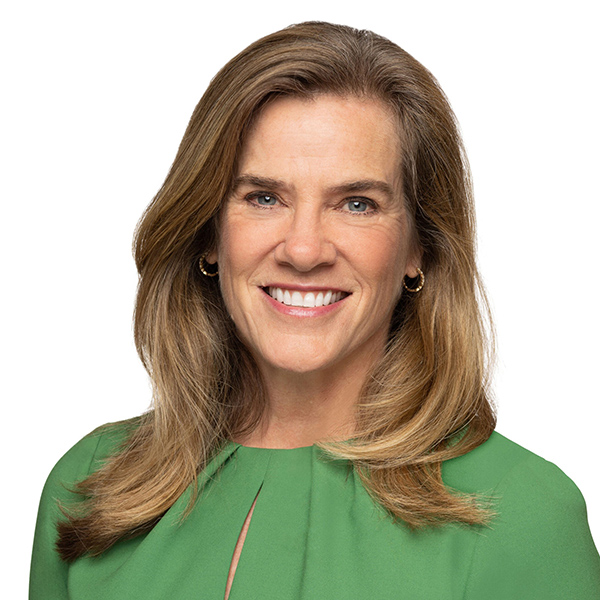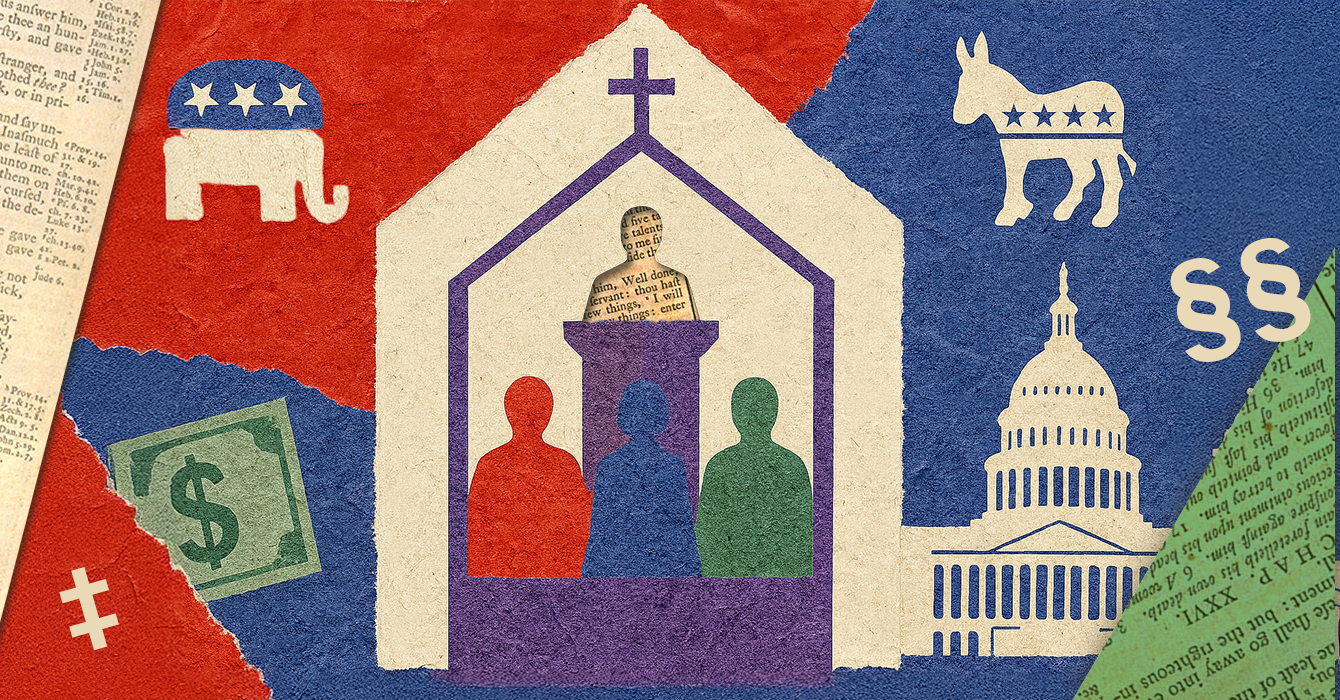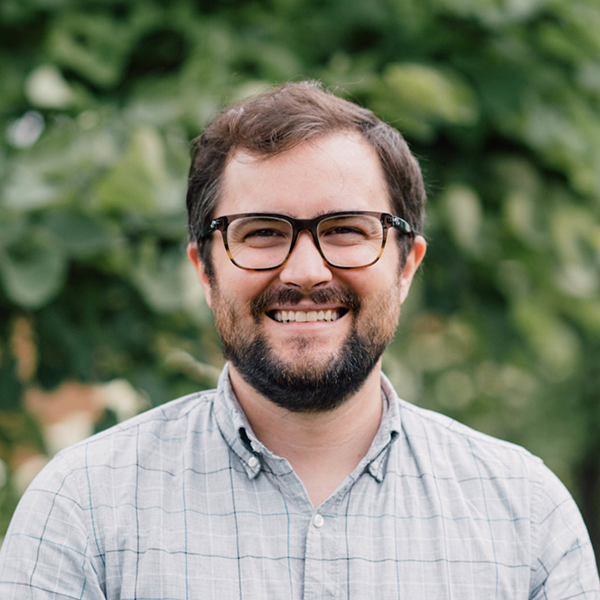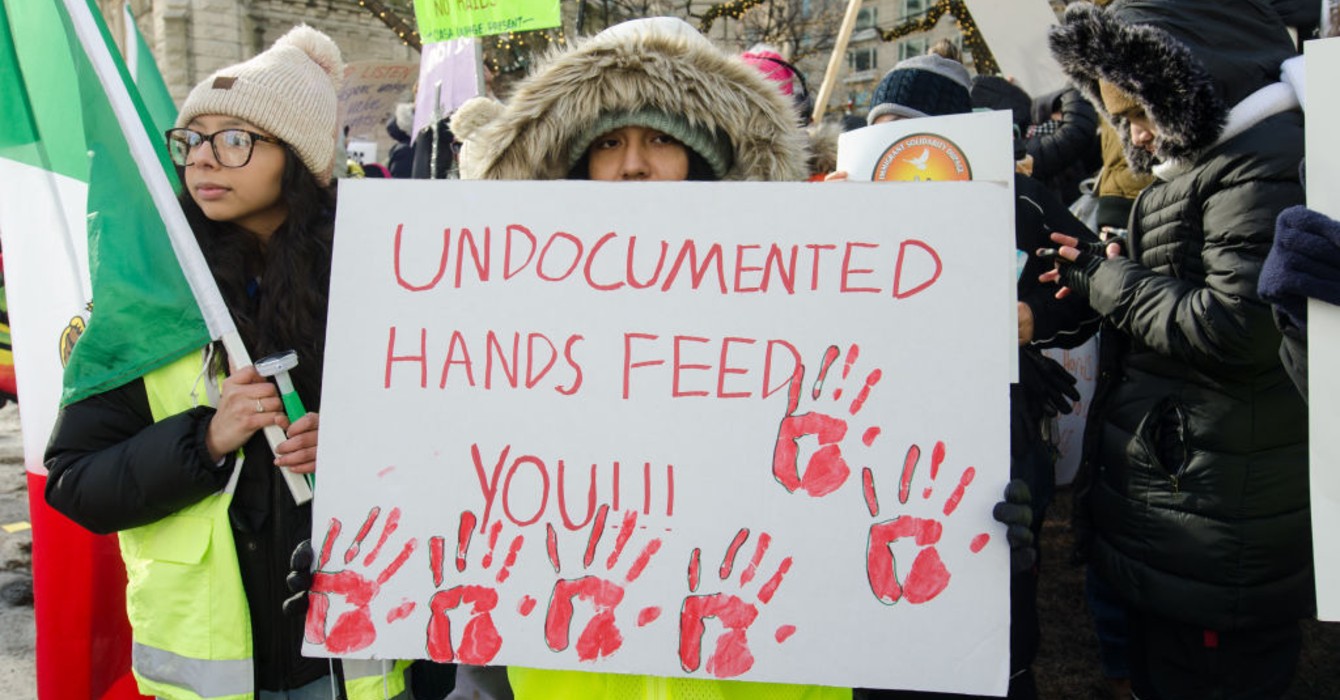Amy Yoder McGloughlin and Melissa Florer-Bixler are Mennonite pastors who have long-term experience and relationships in Palestine and Israel. They are also committed to interfaith work in their communities.
After the Hamas attack on Oct. 7 and the decimation of Gaza that followed, Yoder McGloughlin helped organize Mennonite Action, a grassroots Mennonite response to demand a cease-fire in Gaza and lasting peace in the region. Florer-Bixler later joined as part of the team of pastors.
In a conversation between the two pastors, they reflected on how the events of Oct. 7 and the aftermath changed their ministries and communities, and how the ongoing crisis in the region is shaping their work.
Can you describe how the work of Mennonite Action began and why you’ve invested time here?
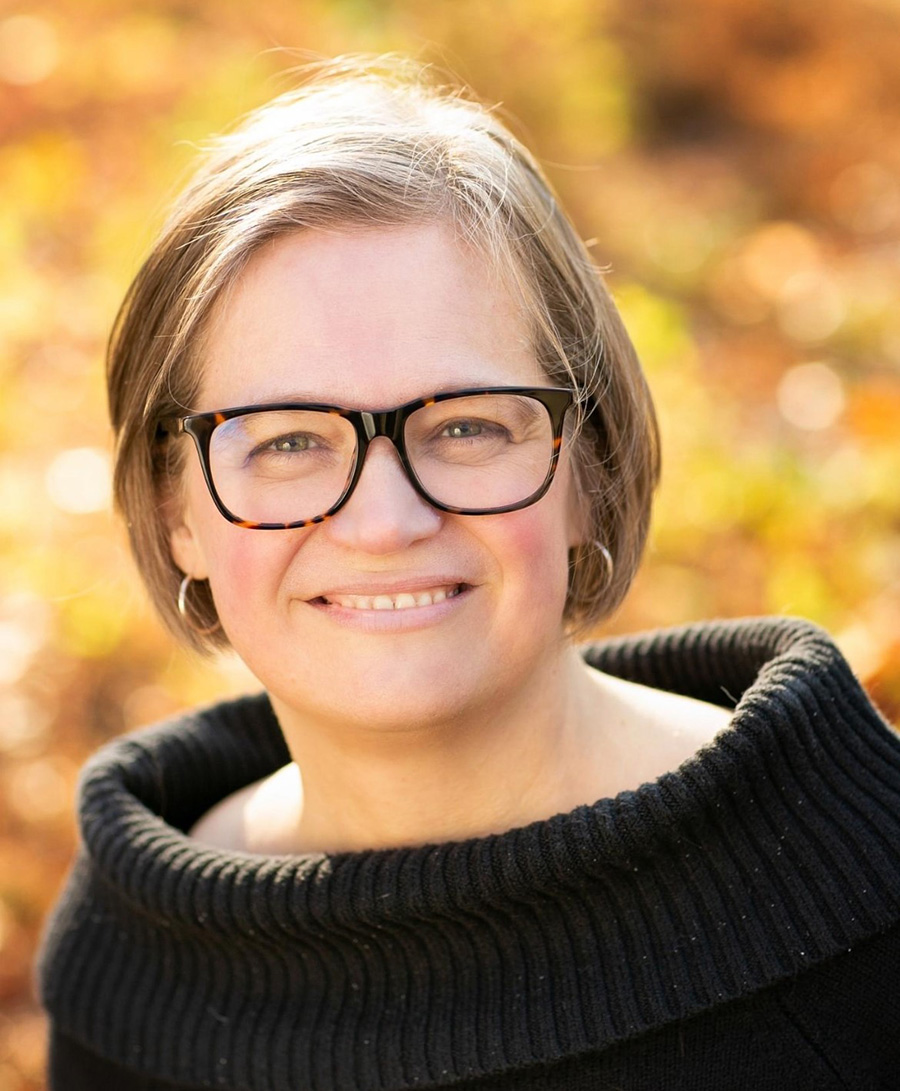
Amy Yoder McGloughlin: I was in the West Bank city of Hebron, leading a multifaith delegation to hear Palestinian stories in their contexts, when Hamas attacked Israel. When I returned from Palestine on Oct. 13, I was not OK. I spent a lot of time crying, reaching out to friends in the West Bank and watching Al Jazeera for the latest updates. I couldn’t sleep. I felt numb, helpless, angry and sad.
Nick Martin, one of the folks that started Mennonite Action, called me in early November and floated the idea of Mennonite Action. I was instantly excited about it. This was a way to direct my grief and anger, using my Mennonite theological identity, along with our songs and spiritual practices. Mennonite Action is led by folks with experience in organizing who were, as a result of the war on Gaza, reconnecting to their Mennonite faith, values and practices. And I needed to work with folks who knew how to organize people around our shared values.
It’s been life-giving to be part of this movement, and I’ve been in awe of how it has activated Mennonite peacemaking values at this moment in time. I’m excited to be part of it and see where it goes.
Mennonite Action began the organizing of Mennonites in the USA and Canada by encouraging local actions. My community visited our local representative, sang together in our representative’s office and talked with her staff about the need for a cease-fire. Folks in our community who have visited Palestine had the chance to speak about the people we know and love who are impacted by the bombings.
In January, Mennonite Action planned an arrestable action in Washington, D.C. About 130 Mennonites stood in the rotunda, singing our heart songs together. They were arrested for refusing to disburse. Another hundred or so folks stood outside to hold vigil. When the arrests were done, the folks outside brought petitions for a cease-fire to our representatives.
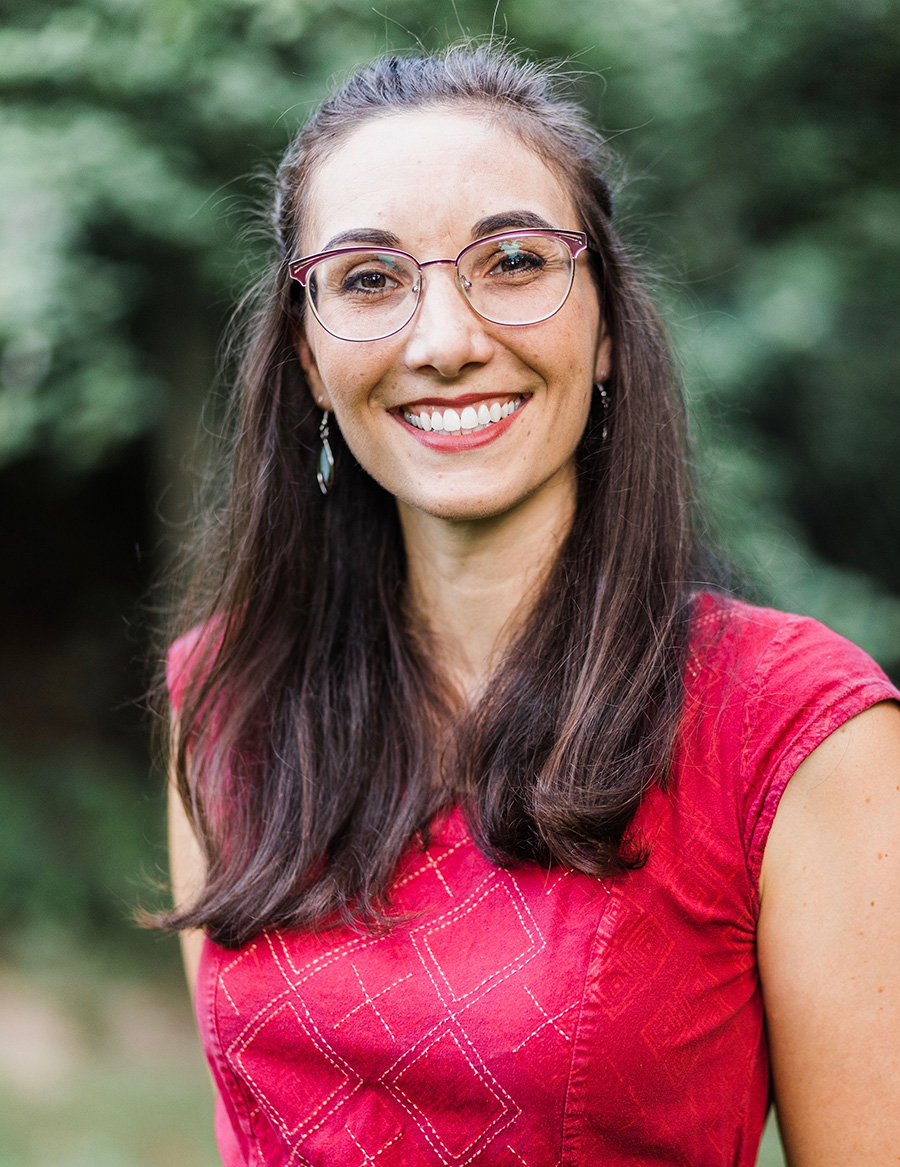
Melissa Florer-Bixler: I came to Mennonite Action because I needed a place where I could be a part of organizing out of my convictions as a Mennonite Christian in response to the devastation in Gaza.
I longed for others who could make space to grieve the horror of the attack on Israel as well as to demand a cease-fire, believing this is needed to end the mass deaths of Palestinians and to assure the return of Israeli hostages.
I wanted to work with others who equally loved Jewish and Muslim interfaith relationships and could sit together with the hard work of navigating these community bonds in this season. I needed a place where others were attending to the human cost of war and were committed to a vision for lasting peace in the region.
Mennonite Action provided that space for me and for people in my church.
How have you been navigating what’s happening in Gaza? How has it impacted your work as a pastor?
MFB: When I heard about the attacks in Israel, I was stunned. As the extent of the violence unfolded, I was heartbroken. I emailed my rabbi friends who had lived in Israel and have friends and relatives in the region. I went to synagogue and prayed with them. I knew that this attack reached into a place of existential fear for some of my Jewish friends, and I wanted to be present for that pain. I reached out to the Islamic association in my city to share my sorrow. I asked how we could support them in this time of rising Islamophobia.
Then I waited for a prayer vigil, a time of corporate grief that would emerge from the decade of interfaith relations we’ve built in the area, but it never came.
Most of my Christian colleagues are silent. Jewish colleagues organized rallies around support for the state of Israel and to show a film produced by the IDF [Israel Defense Forces] showing the horrors of Hamas’ attack. The protests to end the massacre in Gaza are organized by Jews, Muslims and nonreligious people working almost entirely outside of the institutional structures in our community.
There are many times when our interfaith community has come together to grieve tragedy and to strengthen our resolve to confront Islamophobia and antisemitism. After the Tree of Life massacre, we prayed together as a show of unity and support for our Jewish colleagues against antisemitism. After the Christchurch [New Zealand] mosque massacre, we gathered around our Muslim community. Those common bonds feel fragile — perhaps they are undone. But I am grappling most with the stunning silence of my Christian colleagues.
AYM: I have worked very hard on interfaith relationships in my last 14 years as a pastor. This has involved difficult conversations forged in mutual trust and goodwill.
But beginning on Oct. 7, all of that changed.
When Hamas attacked Israel, I understood that what Hamas did was a response to the ongoing incursions on Al-Aqsa Mosque in Jerusalem. While I disagreed with the initial attacks and subsequent retaliation as an Anabaptist and follower of Jesus, I also understood at a cognitive level the underlying narratives that led both Israel and Hamas to behave as they did in those initial days.
The Hamas attacks made me think of Langston Hughes’ poem “Harlem,” and I shared it on social media. That was a mistake, and I fully, publicly and vulnerably admit that. While Palestinian friends and allies understood what I was saying, my neighborhood rabbi back home was deeply hurt.
That first night after the Hamas attacks, while I was messaging with my local rabbi about how she was feeling after seeing my post, Israeli fighter jets flew low over the West Bank on their way to bomb Gaza. It was a painfully contrasted reality clumsily navigated in the middle of the night in Bethlehem. I hurt my rabbi friend deeply. And I held that shame, even as I watched the impact of retaliation on Palestinians in the West Bank and Gaza.
When I returned home, I attended a Shabbat service at my local synagogue as a show of goodwill to my rabbi friend. Antisemitism is on the rise, and the Jewish community needed to know that I supported them and would continue to stand with them. But the language of the evening was very painful to hear — Palestinians were referred to as terrorists, and there seemed to be elation over bombs dropping on Gaza. The community prayed for the Israeli military and hostages, but no one prayed for the people in Gaza.
The next week, I attended Friday services at the local mosque. In the women’s prayer room, they were weeping for the lives lost in Gaza and Israel. After prayers, we gathered, and the women lamented that they feel unable to express concerns about Palestine because their concerns will be seen as antisemitic. They lamented that they voted for a president that promised to address anti-Arab hate in this country but had not yet addressed the sharp rise in hate crimes in the Arab community.
I still struggle with how to walk this tightrope of concern for my Jewish friends and Palestinian friends. I have been accused of being antisemitic for calling for a cease-fire. I have been accused of antisemitism because I march with anti-Zionist Jewish groups. I have been asked repeatedly if I condemn Hamas but never if I condemn the ongoing bombing of Gaza.
I feel very frustrated by the current lines of dialogue. I long for a more clear definition of antisemitism, one that makes a distinction between criticism of the nation of Israel and of the Jewish people. I long for folks to see Jewish and Palestinian people in nuanced ways.
And I also know I have a lot yet to learn. So I’m trying to stay in this conversation, even when it’s hard, and even when I feel misunderstood.
How has your own formation in Israel/Palestine and with local interfaith work shaped your experience of the current crisis? What language are you using to describe what is happening in the region?
AYM: In 2013, I visited Palestine for the first time. And in 2015, I led my first delegation to Palestine with Community Peacemaker Teams. It was a Jewish and Christian delegation, which, looking back now — I was jumping into the deep end of the pool. I went with Jewish and Christian folks from my Philadelphia neighborhood who were already working for Palestinian liberation. The Jewish delegates were either non-Zionist or anti-Zionist, so my language around Palestine was very influenced by their progressive Jewish ideologies.
We were and are all learning about the consequences of the language we use. What we call the land matters and says something about our theological leaning — is the land Judea/Samaria, Israel/Palestine, or just Israel and just Palestine? What we call this situation matters — is it a conflict, apartheid, occupation or settler colonialism? What I say I do when I visit this part of the world matters — am I doing humanitarian work, observing for human rights violations or working in solidarity with Palestinians?
A few years ago, I moved from my multifaith progressive community in Philadelphia to the suburbs. And here I find myself doing a lot more code switching, trying to build bridges so conversations can be possible with the Jewish community here, who are much more conservative around Israel than the previous community with whom I related.
But after Oct. 7, it’s been hard to do that.
I find my own language becoming more clear. Yes, this is the land of Palestine. In the words of Dr. Mitri Raheb, empires come and go, but the people of the land remain.
Yes, what is happening to Palestinians is occupation and apartheid. No, this is not a conflict, because that implies equality between sides. And yes, Palestinian lives matter, and I say that in the same way that when I say Black lives matter, I mean that we must continue to say that until all lives really do matter.
This puts me at odds with some of my Jewish colleagues, which grieves me. Because I have been there with them as antisemitism has spiked in our communities. We have collaborated to bring people together around shared projects and values. But I believe that one day we can be at a place of collaboration again.
I don’t want to see antisemitism grow in my community. And I also want to see Palestinians safe and free. I know both of these things are possible at the same time, and I will continue to sit with people in this very uncomfortable space as we work toward the liberation of all God’s beloveds.
MFB: I spent the summer in Israel as a student in 2001. I returned the next summer in the middle of the second intifada. The next time I returned, I was living on the other side of the notorious checkpoint 300 in Bethlehem.
After Oct. 7, it was surreal to see the rich and diverse spectrum of Jewish responses to the state of Israel resolve into two positions: for Israel or for antisemitism.
My intellectual life was formed across the spectrum of Jewish response to the threat of antisemitism. In graduate school, when I earned my master’s degree in Jewish studies, I knew Jews invested in the “hereness” of the Bund movement in which Jewish communities established thriving and safe diasporic communities.
I knew Zionist Jews but also religious and secular anti-Zionists who see the intertwining of nationalism and Judaism as a spiritual and political disaster. These are not marginal voices. They include Hannah Arendt (who wrestled with Zionism for decades), Franz Rosenzweig, Judith Butler, Noam Chomsky, my anthropology professor, Rebecca Stein, and one of my more formative influences in talmudic studies, Daniel Boyarin. Yet I have heard anti-Zionist Jews like Jewish Voice for Peace referred to as fringe, suspect.
I also feel adrift when I am in organizing spaces where the murder of Israelis is considered a part of the calculus of freedom for Palestine. I’ve been told I’m bothsidesing a genocide when I express this sorrow or name the existential fears Jews face in this moment. But I can’t ignore my own grief or my own religious convictions.
There is so much grief, so much loss. Each of the people killed since Oct. 7 is made in the image of God, and this animates my desire for a lasting peace, beginning with a cease-fire, in the region. Like Amy, I want both the safety and thriving of Jewish people and the safety and thriving of Palestinians. I believe in a future where both are possible, no matter how dim that possibility appears now.
The lack of a shared language makes all of this future more difficult. I have heard Jewish leaders who claim that calling this conflict a genocide is antisemitic, akin to blood libel. Masha Gessen (a Jewish scholar vilified for comparing the repression of Palestinians to the repression of Jews) explains that for Jews in the state of Israel, the answer to the question of genocide is another question: “How can genocide be committed by us?”
Israel’s perception is that the Hamas massacre was an existential threat to Jewish existence and that any reaction was and is just and righteous.
This explains why we hear IDF soldiers chanting, “We know our slogan: / there are no ‘uninvolved civilians’ / there are no ‘uninvolved civilians.’” This helps us understand why some Israelis block aid convoys into Gaza — because of a belief that all Palestinians are implicated.
But we know that a mass attack happened on Oct. 7 that led to the murder of 1,200 Jewish and non-Jewish people in Israel and 240 people taken hostage, along with displacement and thousands of injuries. This was catastrophic — heartbreaking.
We also know that in response, Israel attacked Gaza, killed people indiscriminately by the tens of thousands (as of writing this, that number is close to 33,000 people); that the state of Israel is destroying entire neighborhoods, actively engages in culture erasure by obliterating mosques and other archaeological sites, bombs schools and hospitals, herds Gazans to safe zones that are then bombed; and that at every turn the state of Israel justifies these actions with claims of military intelligence that they will not disclose but ask us to trust nonetheless.
We have watched Israel cabinet member Itamar Ben Gvir openly call for the ethnic cleansing of Gaza. As of today, 1.1 million people in Gaza are facing catastrophic food insecurity. Many have no access to medical care and little clean water. A few weeks ago, we witnessed Israel fire on a hungry crowd of Palestinians attempting to get to flour convoys. Millions of Gazans are displaced from their homes.
As Anabaptists, we are committed to disrupting cycles of violence, including state violence.
Those of us in the U.S. who are calling for a cease-fire — Jews, Christians, Muslims, and people of other or no faith — do so in direct proportion to the special relationship that has animated U.S.-Israel politics for 75 years.
We give more directly military aid to Israel than to any other country on earth — over $3 billion a year. Unlike other countries, we have a policy that we will not publicly discuss Israel’s nuclear program. Our economic and political support for Israel is unconditional, which means that no matter how catastrophic the policies of Israel’s far-right government are for Palestinians, our other relationships in the Middle East, or negotiating to dismantle Iran’s nuclear program, the U.S. is committed to looking the other way.
It is our moral responsibility to respond as citizens of a democratically elected government that advances these policies in our name.







